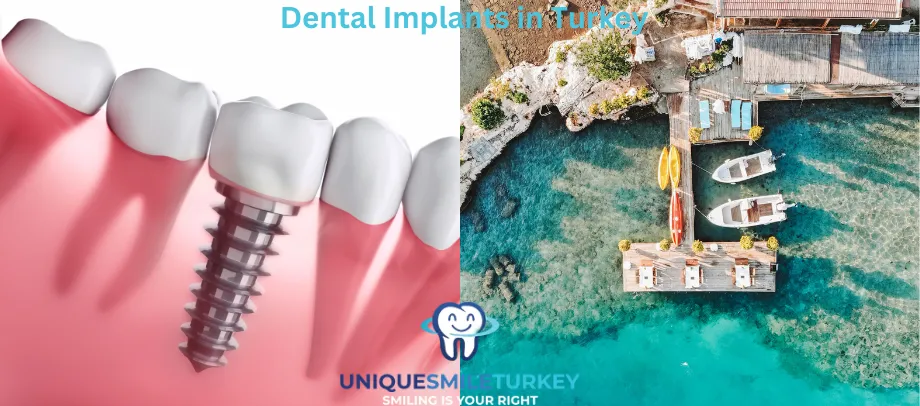


Yes, it is a good idea to get dental implants. Decisions on dental implant treatment depend on many variables, and it's crucial that individuals carefully consider all relevant details. Dental implants can be an ideal option for many individuals looking for a permanent and natural-appearing solution to missing teeth, though prioritising consultation with a qualified dentist to assess your specific circumstances and make an informed decision tailored specifically to your oral health goals is key.

Some advantages of dental implants are as follows:
The following are a few of the most typical dental implant risks:
The implant site carries a very low risk of infection. Antibiotics can be used to treat this.
Dental implant surgery occasionally results in nerve injury. This may result in pain, numbness, or tingling in the lips or face.
In some cases, an allergic response to the materials used in dental implants is possible.
Over time, the gums can recede around dental implants. This can make the implants look unsightly and can also make them more likely to fail.
Firstly, a comprehensive assessment will determine your suitability. During the procedure, you'll likely be under local anaesthesia with sedation, so discomfort is minimal. Some post-op swelling and mild discomfort are common, but easily managed with prescribed medications.
Over a few months, the implant will integrate with your jawbone, becoming a stable foundation for your new tooth. Once healed, a custom-made dental crown will be attached, mimicking a natural tooth. With appropriate oral hygiene practises, your dental implant will exhibit the same appearance, sensation, and functionality as an authentic tooth. Regular dental check-ups ensure that your oral health remains in excellent condition for many years to come.
There are many steps involved in the dental implant treatment and healing period. Here's a summary of recovery:
Following implant surgery, you can feel soreness, bruising, and swelling in the area surrounding the incision. Your dentist can prescribe painkillers to help you manage this. A soft diet and ice packs are also advised during the first several days.
It takes patience to go through the osseointegration process, which might take weeks or months. It's critical that you adhere to your dentist's recommendations for oral hygiene and care at this period.
It's essential to see your dentist on a regular basis to evaluate the healing process and make sure the implant is properly integrating with the bone.
Maintaining proper oral hygiene is essential. Use an antibacterial mouthwash per your dentist's recommendation and brush and floss the area surrounding the implant site with caution.
In order to protect the implant site, you may initially need to avoid hard and sticky foods.
Excessive alcohol intake and smoking might impede the healing process and raise the possibility of problems. Avoiding them is advised while recovering.
Dental implants have a lifetime of potential with proper maintenance. To guarantee that the implant stays in top shape, regular dental examinations are essential.
Noting that recuperation times might differ across individuals is crucial. Your dentist will offer personalised advice based on your particular situation. While recovering, get in touch with your dentist right away if you have any unexpected pain, swelling, or difficulties.
The duration of the treatment is the primary distinction between conventional dental implants and same-day dental implants. Same-day dental implants can be done in a single session, in contrast to conventional dental implants, which normally need two surgical operations.
Yes, you are suitable for dental implants if you satisfy the following criteria:
If you have any of the following conditions, getting implants is not advised:
No, dental implant treatment is not painful as we perform our implant procedure on our patients under local anaesthesia. Mild pain may occur after the effect of anaesthesia wears off. These pains are also considered normal. It will be sufficient to use the painkillers recommended by your dentist for these pains.
A dental implant lasts 20 to 30 years. Dental implants can persist for many years if they are properly maintained. However, some implants have a 50-year lifespan or beyond.
The following variables affect a dental implant's life expectancy:
A significant aspect in influencing the longevity of an implant is the quality of the implant material and the manufacturing process.
A dentist who is experienced and having skill in placing implants is more likely to achieve a successful outcome.
If the patient does not brush and floss their teeth regularly, the implant is more likely to fail.
The implant is more susceptible to failure if the patient has a persistent medical condition, such diabetes.
On well-known video-sharing websites like YouTube, dental implant treatment films are readily available. It's important to remember that only licensed and experienced dental professionals should undertake dental implant operations when watching these movies. If you're thinking about getting a dental implant, you should speak with our qualified oral surgeon or dentist who can offer you individualised advice and carry out the process in a safe and efficient manner. You can see teeth implants before and after to decide.